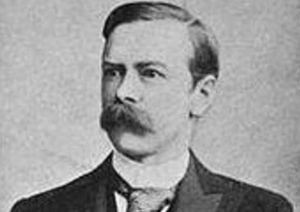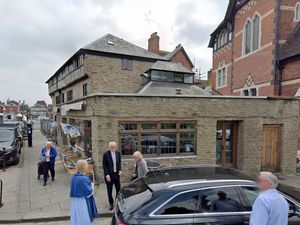Ludlow author to be honoured with blue plaque
One of England's best-selling authors is to be honoured with a special plaque in his home town of Ludlow.

The town's Civic Society has put forward Stanley Weyman, who was once as popular as Dickens and Kipling, for a blue plaque.
The scheme, which is now managed by Historic England, commemorates the link between a place and a famous person, event or former building on the site, serving as a historical marker.
Weyman's work fell into obscurity after his death in 1928 until last year, when fan Jim Lawley convinced Ludlow publishers Merlin Unwin Books to reissue the forgotten novel Ovington's Bank.
Karen McCall, managing director of Merlin Unwin Books, said: "We are delighted that one of Britain’s greatest storytellers, once as popular as Charles Dickens, is being recognised with a blue plaque in 2020 thanks to Ludlow Civic Society.
"Weyman lived at 54 Broad Street in Ludlow from where he wrote his novels, including what is considered his best of his 24 published; Ovington’s Bank. His desk where he wrote his novels was in what is today JHQ Hair Salon in Broad Street, part of Ludlow’s Conservative office, which was then Weyman’s family home.
"We as Ludlow book publishers were persuaded to reissue his rather forgotten novel, Ovington’s Bank, by the very enthusiastic local Weyman fan Jim Lawley, who now lives in Spain, and who pointed out to us that this particular novel was set in 1825 Shrewsbury and opens in what is today’s Wyle Cop, with the action taking place in various parts of the county from Shropshire."
Weyman qualified as a barrister and supplemented his meagre income by writing short stories for the Cornhill Magazine. The editor's suggestion that he try his hand at writing novels proved a turning point in his career, and international bestsellers followed, earning him immense popularity and a substantial fortune.
For the last 30 years of his life he lived in Denbighshire. He died in 1928 and by the late 20th century all his books were out of print.
Recipients of blue plaques must have been dead for at least 20 years and must have lived at the location they are being connected with for either a long time or during an important period, such as when writing their seminal work or creating their key invention.
Weyman's plaque will be unveiled at a ceremony at midday on January 31 at his former home in Broad Street.





